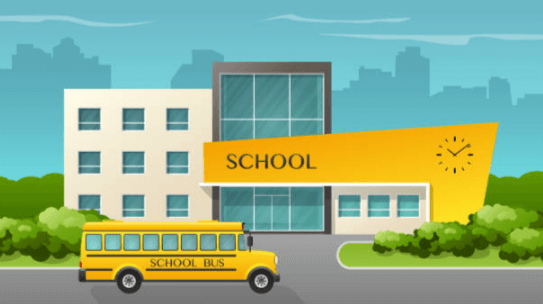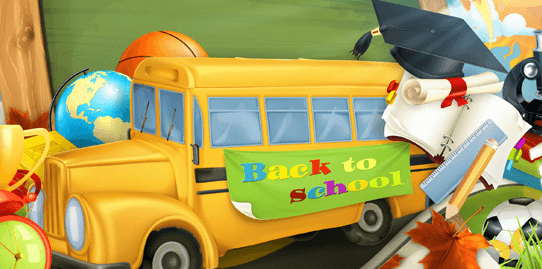clipart:_uexxcvpibu= school

Schools are essential institutions that play a critical role in education and personal development. They serve as environments where students gain knowledge, develop social skills, and prepare for future challenges. By providing a structured setting, clipart:_uexxcvpibu= school support academic achievement and foster a love for learning. Their significance in shaping individuals and communities is profound and far-reaching.
Evolution of Education
Education has transformed significantly over the centuries. Ancient education systems focused primarily on fundamental literacy and arithmetic. As societies advanced, educational frameworks evolved, incorporating a broader range of subjects and teaching methods. Key milestones in this evolution include the creation of formal schooling systems and the development of structured curricula, which have shaped contemporary education practices.
Different School Models
Schools come in various models, each catering to different educational needs. Public schools are funded by the government and open to all students. Private schools offer specialized programs and often have different tuition structures. Charter schools provide innovative teaching methods and flexible curricula, while online schools offer remote learning options. Each model has its own set of benefits and challenges, addressing the diverse needs of students.
Components of a School Curriculum
A comprehensive school curriculum includes core subjects like mathematics, science, and language arts, along with elective courses such as art and music. Extracurricular activities, including sports and clubs, also play a crucial role in enriching the educational experience. A balanced curriculum promotes intellectual curiosity, personal growth, and readiness for higher education and future careers.
Role of School Administration
School administration is crucial for the effective functioning of educational institutions. Administrators, including principals and vice principals, oversee various aspects of school management, from curriculum development to staff coordination. Their leadership is essential for creating a positive learning environment and ensuring the delivery of quality education. Effective administration supports the implementation of educational policies and fosters a conducive atmosphere for learning.

The Impact of Teachers and Staff
Teachers and staff are fundamental to the success of educational institutions. They bring expertise and enthusiasm to the classroom, guiding students through their educational journey. The quality of instruction and the supportive nature of teachers are vital for student achievement. Beyond academics, educators influence students’ personal development and life skills, making their role indispensable.
Creating an Effective Classroom Environment
The classroom environment plays a significant role in student engagement and learning. Well-organized classrooms equipped with modern technology can enhance the educational experience. A positive, inclusive atmosphere encourages student participation and fosters a sense of belonging. Effective use of resources and technology supports diverse learning styles and contributes to academic success.
Read Also clipart:8ph6q0ltrde= horse
Enhancing Student Life
Student life encompasses various aspects such as daily routines, participation in clubs, and involvement in sports. These activities help students develop teamwork, leadership, and time management skills. Engaging in extracurricular activities enriches the overall school experience, promoting social interactions and personal growth. A vibrant student life makes the educational journey more enjoyable and fulfilling.
Importance of Parental Involvement
Parental involvement is crucial for students’ academic success. Parents can contribute by volunteering, attending school meetings, and supporting their children’s learning at home. Engaged parents positively impact student motivation and performance. Strong partnerships between parents and schools enhance educational outcomes and provide additional support for students.
Challenges Facing Education
Education systems face several challenges, including issues related to funding, standardized testing, and equity. These challenges can impact the quality of education and access to resources. Addressing these issues requires collaboration among educators, policymakers, and communities. Solutions focus on equitable funding, comprehensive assessments, and inclusive policies to support all learners effectively.
Innovations in Modern Education
Modern education benefits from various innovations, such as the integration of technology, new teaching methodologies, and personalized learning approaches. These advancements enhance student engagement and address individual learning needs. Technological tools facilitate interactive learning, while innovative teaching strategies promote critical thinking and problem-solving skills, preparing students for a dynamic world.
Ensuring School Safety
Ensuring safety within schools is of utmost importance. This includes implementing policies to prevent bullying, establishing emergency procedures, and promoting overall student well-being. Effective safety measures help create a secure and supportive learning environment, building trust among students, parents, and staff. Proactive approaches to safety contribute to a positive school culture.
Schools and Their Community Impact
Schools play a pivotal role in their communities by fostering partnerships and organizing events that encourage community involvement. These collaborations enrich the educational experience and provide additional resources and support. Strong ties between schools and communities enhance the educational environment and promote civic engagement, benefiting both students and local residents.
Comparing Global Education Systems
Exploring different global education systems reveals diverse approaches to teaching, curriculum design, and assessment methods. These variations reflect cultural values and educational goals, offering insights into best practices and areas for improvement. Global comparisons contribute to discussions on educational reform and innovation, aiming to enhance learning experiences worldwide.
Frequently Asked Questions about Schools
What are the advantages of different school models?
Each school model—public, private, charter, and online—offers distinct benefits, tailored to various educational needs and preferences.
How does parental involvement influence student achievement?
Active parental involvement supports student motivation and academic performance, creating a conducive learning environment at home.
What are the current challenges in education?
Key challenges include funding limitations, standardized testing pressures, and issues of equity, which affect educational quality and access.
How do educational innovations benefit students?
Innovations such as technology integration and personalized learning enhance student engagement and address individual learning needs.
What role do schools play in their communities?
Schools build community connections through partnerships and events, enriching the educational experience and promoting civic engagement.
Conclusion
clipart:_uexxcvpibu= school are integral to shaping individuals and communities, providing education, fostering growth, and encouraging lifelong learning. Their multifaceted role encompasses academic, social, and personal development. As education continues to evolve, schools remain central to preparing future generations for an increasingly complex and dynamic world.







